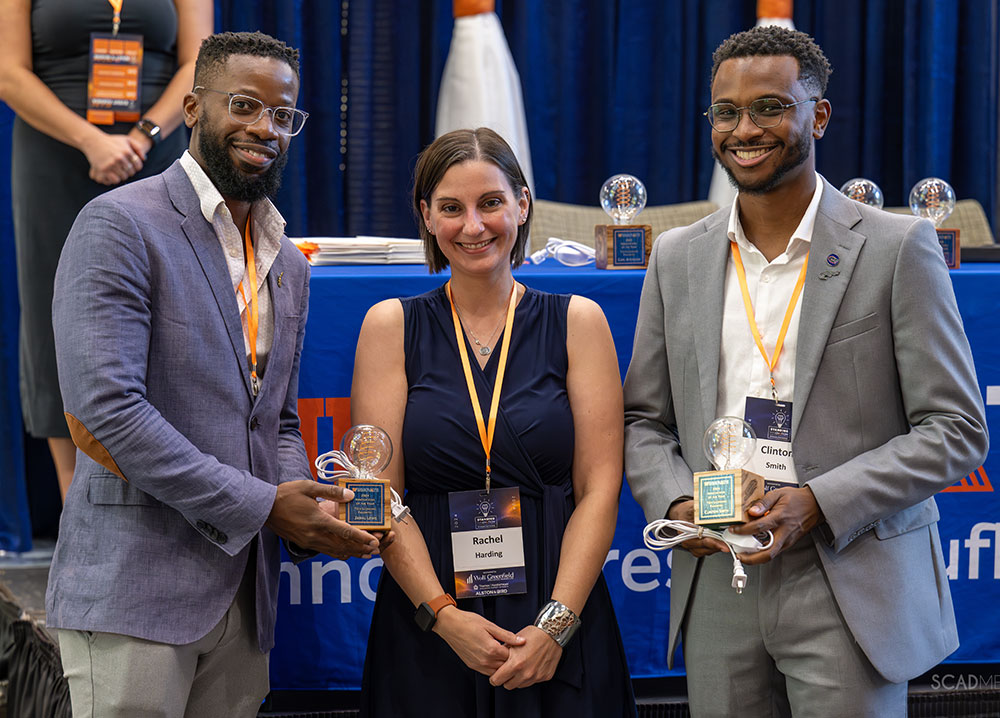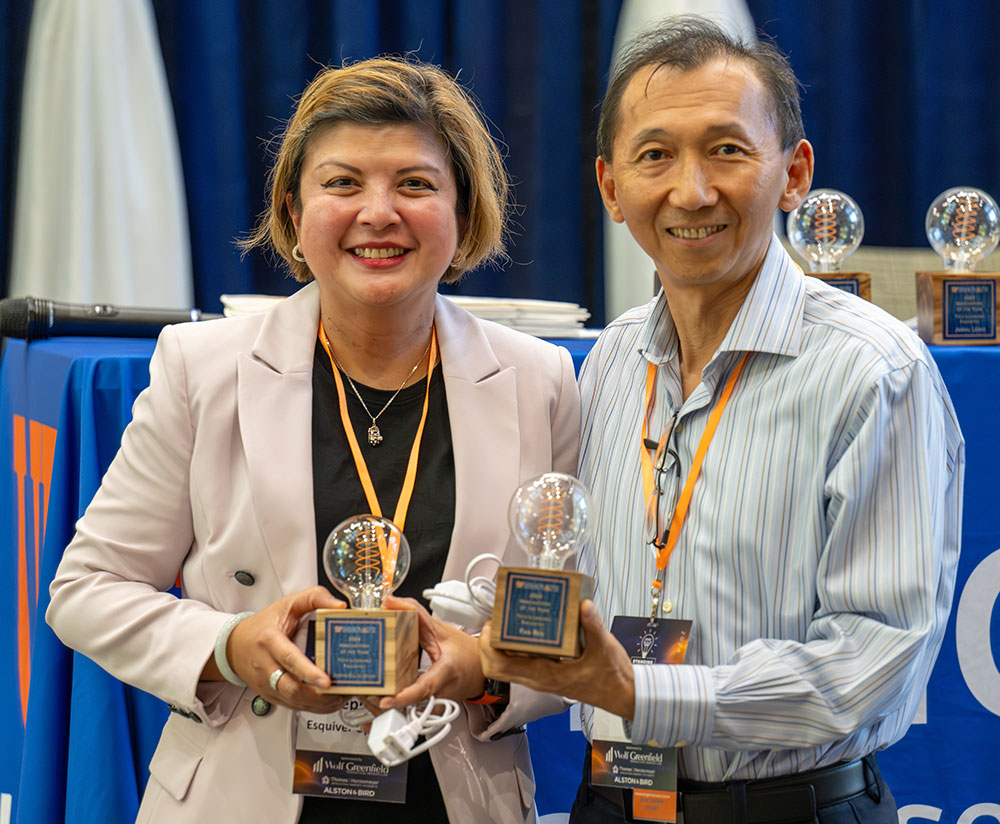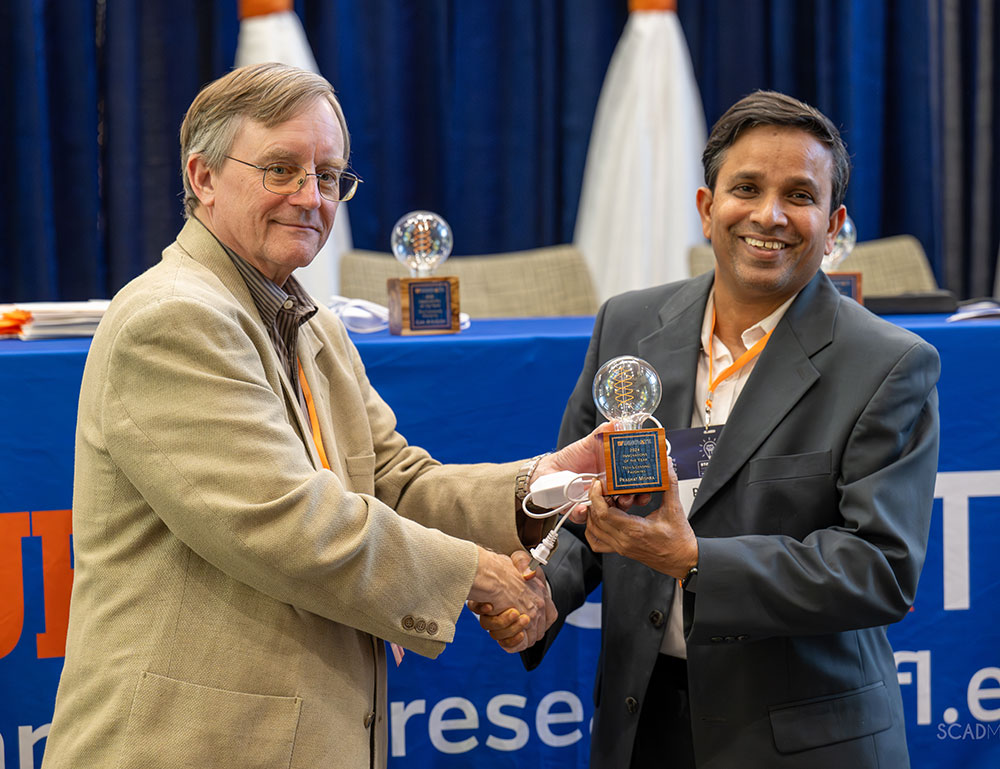Last week, UF Innovate | Tech Licensing announced the top six innovations of 2024 at its annual Standing InnOvation event, three of which were faculty researchers in the UF Herbert Wertheim College of Engineering.
Jamal Lewis, Ph.D, an associate professor of biomedical engineering, and his research team, including graduate student Clinton Smith, were recognized for a project that could transform how brain disorders are treated. Fan Ren, Ph.D, a distinguished professor in chemical engineering, was recognized for using saliva to detect diseases, such as breast and oral cancers. Prabhat Mishra, Ph.D, a distinguished professor in the Department of Computer and Information Science and Engineering, was honored for his work to revolutionize quantum computing and cybersecurity.



Lewis’ lab leverages the natural abilities of the fungus Cryptococcus to navigate the body and cross the blood-brain barrier, allowing for targeted drug delivery to the brain.
“Our goal is to create small biomaterial particles loaded with therapeutic drugs, which can be attached to these fungi,” said Lewis. “Once injected into the body, we aim for the fungi to travel to the brain and release the drugs where they are most needed.”
Ren, who collaborated with Josephine Esquivel-Upshaw from the UF College of Dentistry, is advancing biosensor technology, which has evolved from using basic glucose strips to detecting multiple biomarkers simultaneously with an approach that “enhances sensitivity by 100 to 1000 times,” Esquivel-Upshaw said.
The goal is to create a multi-channel strip capable of detecting six biomarkers from a single saliva sample, prompting further testing like mammograms.
“We are not trying to eliminate mammograms or imaging,” Esquivel-Upshaw said. “The biosensor is intended to complement current diagnostic techniques rather than replace them.”
Mishra’s research emphasizes the development of quantum error correction codes and quantum circuit modeling, both critical for protecting quantum information from errors caused by noise and decoherence. His invention includes understanding weaknesses and designing systems that effectively mitigate the associated risks. As cybersecurity threats become increasingly sophisticated, this work is crucial amid the growing need for protective measures.
“Noise can negatively impact the performance and reliability of quantum computations,” said Rick Croley, the licensing officer for UF Innovate.
Mishra’s research includes correcting thermal errors, which have already been tested on IBM quantum computers.
Additionally, this invention focuses on improved benchmarking of quantum computers, suggesting that future evaluations should include factors like initialization and measurement. By addressing thermal noise and circuit stability, Mishra’s contributions aim to advance quantum computing technology significantly, opening new possibilities for faster and more efficient computing solutions.
Standing InnOvation gives innovators a well-deserved “standing ovation” for disclosing, optioning, or licensing their innovations during the fiscal year. The number of disclosures, options, and licenses coming through the UF Innovate | Tech Licensing office continues to grow annually. In the 2024 fiscal year, which ended on June 30, UF innovators disclosed 372 new technologies, licensed 121, and started 9 startup companies.
Faculty from UF’s College of Engineering represented 206 innovators who disclosed new technologies and had their technologies patented, optioned, or licensed.
View the full list of awardees below.
